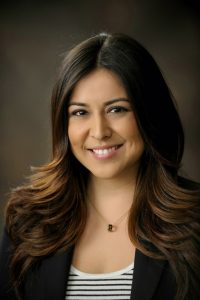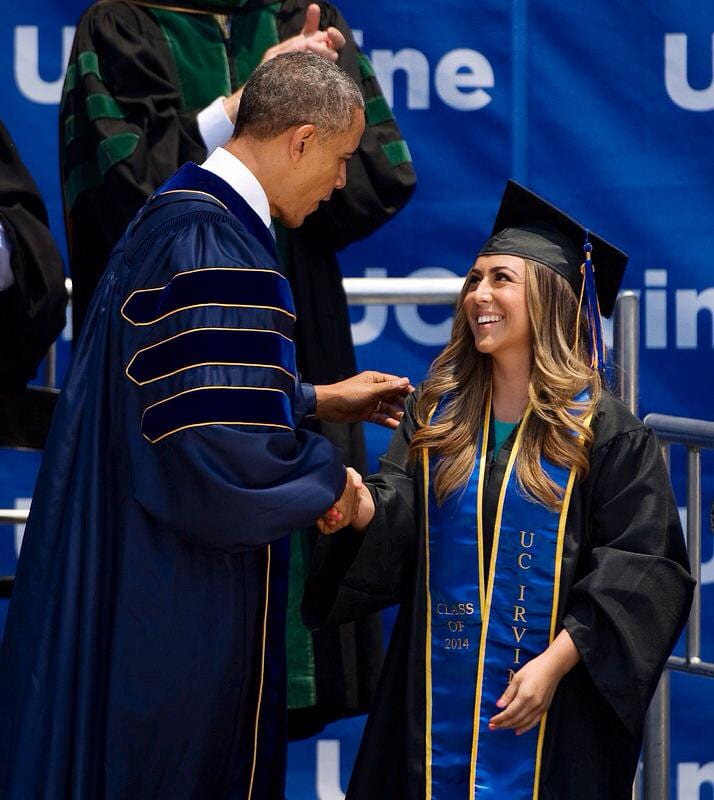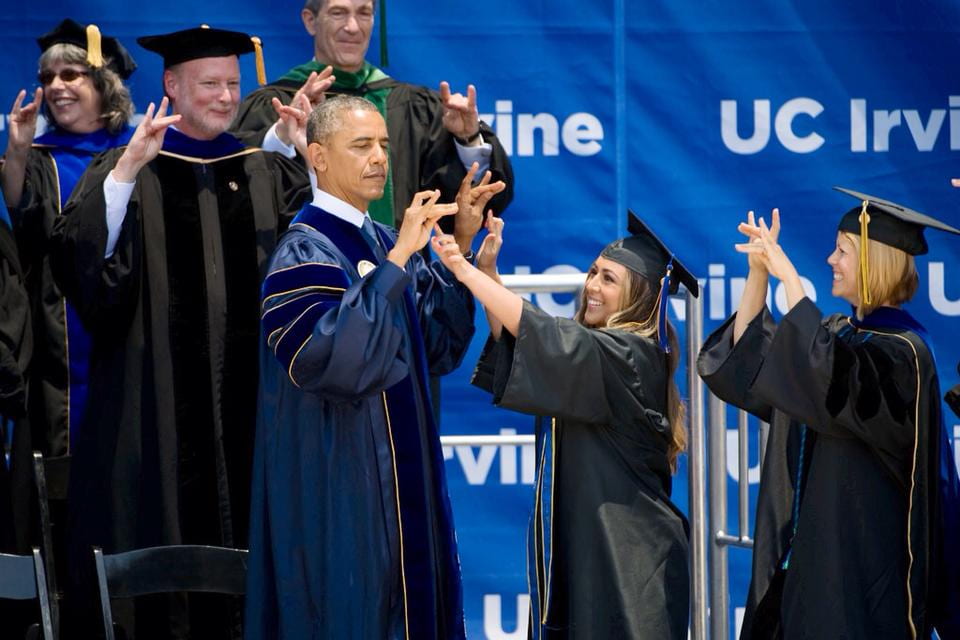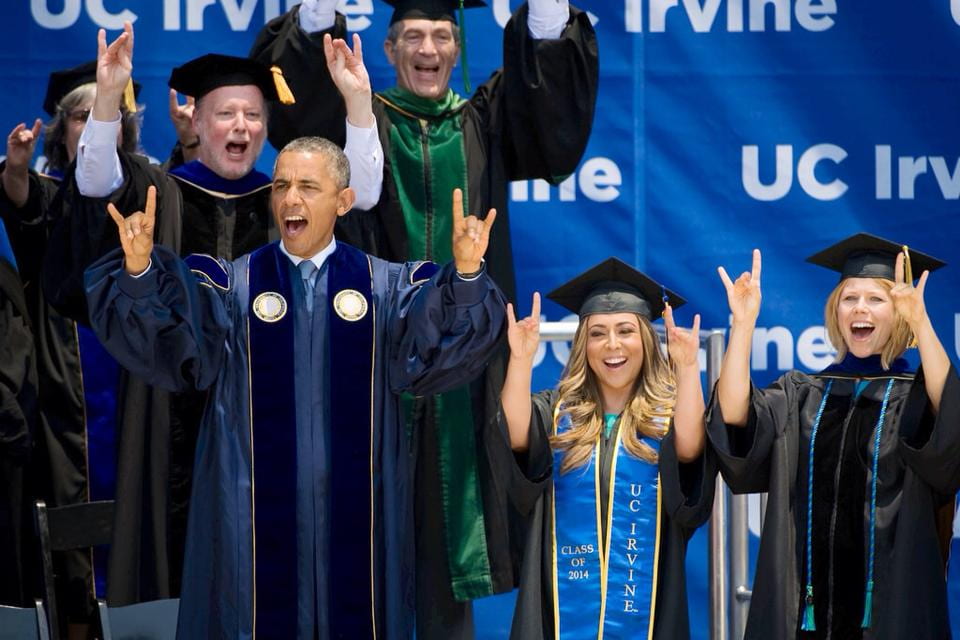Jacqueline Rodriguez is the daughter of Salvadoran working class immigrants. Both her parents fled El Salvador during the Civil War and settled in Los Angeles, California where Jacqueline was born. At age 5 Jacqueline’s mother died of cancer and her dad, with the help of her grandmother, raised her. Today her father is a big-rig truck driver and her stepmother is a homemaker. It was her parent’s immigrant narrative that shaped Jacqueline’s perspective, academic interests, and career aspirations. She became the first in her family to graduate from college and is the product of public higher education. Jacqueline holds an associate’s degree from Mount San Antonio Community College, a bachelor’s degree from UC Irvine, and a master’s degree in education policy from the University of Illinois at Urbana-Champaign.
While at UC Irvine she was a student coordinator for the Early Academic Outreach Program where she mentored students in low-income high schools to help prepare them for college. She was also a research assistant for Dr. Maria Rendon’s study on the mobility prospects of second-generation Latino males in Los Angeles, helping analyze neighborhood effects, family dynamics, peer ties, education, and social and financial support. She studied abroad in Greece and Cyprus and was involved in student-led organizations on campus. She ultimately received dual degrees in Sociology and Chicano/Latino Studies and went on to become commencement speaker alongside President Barack Obama in 2014.
Currently, she lives in Washington D.C. and is an associate consultant for Manhattan Strategy Group where she manages federal projects for the Office of Career, Technical, and Adult Education (U.S. Department of Education) that support disconnected youth and adults in obtaining the necessary knowledge and skills for employment and economic advancement in a 21st century global economy. Jacqueline plans to continue pursuing a career in the workforce and economic development but is looking to ultimately do so internationally, for a Latin American government, ideally her parents’ country of El Salvador. In doing so, she plans to eventually pursue a master’s in public policy with a focus in international development. While in graduate school she plans to apply for Fulbright once again to conduct research on job training and security measures for disconnected youth in El Salvador.
What was the journey leading up to your Fulbright Finalist ETA position?
I was an undergraduate at UCI, where I double-majored in Sociology and Chicano Studies. When I was applying for the Fulbright, I applied for the Venezuela program to teach English. At the moment, I was very interested in educational development in Latin America and international education policy and that led me to apply to the Fulbright, ETA. While I did not receive the Fulbright scholarship, I did become a semi-finalist so I’m really quite familiar with the process. Through the application process, the SOP office was very helpful. Michelle was especially helpful.
What do you think are the ingredients of a successful application? You made it to semi-finalist status. What was the process like for you?
A lot of times when students apply for grants, they start to tailor their resumes and statements to fit the prompts. I think those steps are important, but if you start to notice that you are tailoring too much or struggling to put things together, I think that’s a good indicator that your purpose or reasoning for applying may need some work.
To write a successful application, you have to have a very clear vision of why you want to do a particular work, whether it is research or the ETA.
For example, some of the questions you should ask yourself are:
What is it about this particular country that calls you to teach English there or do a research project? The answer cannot be abstract in any way or general. I think what makes a really good statement is for you to have a really strong connection to that country. If you say, for example, “oh, I want to improve the educational development there for different socio-economic reasons in Latin America,” that statement may not be enough because it could apply to many different Latin American countries. The better question to ask yourself is, why would I want to contribute to, let’s say, Argentina, specifically? What is your connection to that country? Have you been studying it? Does it connect to something else you’ve been doing? Did you study abroad in the region? I think having that connection is really important. With that said, I think you should start the process way in advance before you apply.
What I hear you say, is that the Fulbright application for the ETA is not something you can do on the spot without preparation in other areas of our life. You have to have build other related experiences and expertise.
Exactly, I think it’s something that maybe you’ve already been working on. It’s more like, “I would like to do this, in order to continue doing the work I started here,” which is different than seeing an ETA as a personal opportunity to go travel.
That has to be tricky, especially when you are applying to teach English and so many students are applying to do the same. How do you make your case stronger than somebody else’s?
You could start building your case by connecting it to a course you took where you studied the issues. You could also connect it to a study abroad experience. For example, you studied abroad in Vietnam and became aware of water issues, and then took a course on it. I think that’s already a good path for it. This could be used to show, “I’m already familiar with this.” You can also network with organizations and highlight that connection.
And this is something that someone might not put together. You might think, I can teach English. But does the student think beyond and into the cultural collaboration and contribution component? What else does the student bring to the country?
Exactly. It’s not only being a U.S. ambassador but also how would you benefit that country by being able to provide English language abilities. It is definitely important to cultivate a certain type of relationship.
Jacqueline, why did you originally choose Venezuela?
I think I chose it because in some of my Latin American classes I had studied the economic challenges there, specifically in terms of their default. I had also studied educational policy there. These classes drew my interest in that country and so I built my case, stating I wanted more hands-on experience to understand and work in educational policy in the classroom and teach English at an elementary level.
How in-depth did you study the locale and the student body? How did you craft your statement?
I think that’s where I fell short. I didn’t have enough time. By the time I started gaining more interest, I had not spent enough time to develop a deeper relationship. I think it would have been really good for me to reach out to organizations early on, study the work that they were doing in the classroom, and maintain that contact.
On the other hand, it’s really hard to get specific on a locale, because you don’t know where the Fulbright might place you. They might place you in a rural setting or they might place you in a capital city. It’s a gamble.
You pick the country, and you say, this is where I want to go and for these reasons, but you really can’t say, “I want to specifically do this type of work in the city,” because if anything, you could jeopardize yourself by saying that in your application. You don’t know where they are going to place you.
It’s tricky in that you have to demonstrate in-depth knowledge of the country and its issues but, at the same time, you want to make sure you are not focusing too much on a specific area or region within the country because you might be limiting yourself for other opportunities.
How important is it to have relatable experiences teaching in under-resourced areas?
That’s another important piece of advice that I received from other people. You want to be very strategic in explaining what skills you would use to thrive and carry out your work in a very challenging environment.
You could end up in a place where there are lack of resources or teachers that don’t show up, or you may have a complete lack of understanding for an educational culture, so you have to be able to convincingly explain how you could, in a situation that might be very tough, still persevere and maintain your mission, focus and efforts. What related experiences can you pull from?
I have a friend who did the Fulbright in Colombia. His application was really good because not only did he demonstrate the different types of international experiences he had with specific student-age groups, but he also demonstrated he had experiences working in under-resourced, low-income type of environments. He was able to provide teaching and instruction to students, under duress, and he also demonstrated he was resourceful. I think that’s key to the Fulbright ETA. You have to be able to demonstrate that.
When you received the semi-finalist news, did they share why you were a semi-finalist and not a winner?
So, there are 3 different reviews. The first one is from UCI, seeing if they want to endorse you and push your application forward. Once it’s pushed forward, the U.S. reviews your application. That’s another application pool. Then, the U.S. selects candidates depending on the country. I believe it was 20 applicants for Venezuela. Next, the U.S. sends those 20 applicant materials to Venezuela, and then Venezuela has the final decision, which also depends on how many spots they have available. In my case, there were only two. Finally, Venezuela then chooses from the 2. I was a semi-finalist.
So by the time you become a semi-finalist, the U.S. has approved you. This is why they say becoming a semi-finalist is a really big honor, because the U.S. has selected you.
After Venezuela makes its final decision, you don’t know why they selected the way they did.
Did you use all the time and work spent on crafting this application to apply for other things, like graduate school?
Definitely. The Fulbright application process is extremely rigorous. It definitely helped me with other application processes, in terms of getting acquainted with how to craft my own personal statement, but specifically, the statement of work. I definitely applied to graduate school. I applied for an educational policy program and I completed a 2-year Masters program in Education Policy.
Currently, I’m living in D.C. and work for a federal contractor overseeing different department of education initiatives. I’m still really interested to taking these experiences to an international arena, specifically in Latin America. At some point, I might try to pursue the Fulbright but in a research capacity.
Are there any final tips you’d like to share that can be useful to a student who wants to teach through the ETA Fulbright program?
Besides having a direct connection and showing how you can be resourceful under stressful circumstances, I think overall, having a passion and vision for being a Fulbrighter. What does Fulbright really mean to you? How are you going to exemplify that as a U.S. ambassador? Understanding the mission and believing in it is really important.
What was your source of inspiration for applying?
I took a class with a professor who knew my interest. He told me about it, and encouraged me to look into it given my international interest and my background.
Did you know who to ask for letters?
By the time you are becoming a Fulbright or are in the running for it, you should know who to ask for a letter of recommendation. You’ve been involved in work or doing research with certain professors.
In your opinion, how early should students learn about the Fulbright opportunities so that they have enough time to craft themselves as competitive candidates, rather than say, I haven’t done enough to make me a strong candidate for these fellowships.
I’m so glad you are bringing this up because this was kind of my struggle, especially coming out of a first generation background, working-class student. I was obviously not aware of any of these opportunities and for most of my college experience that’s what it was like. It was me hearing it from professors, or me, rebuscandole, searching for opportunities on my own.
I think it would be really important for freshmen to access this information, and equally important, for those who disseminate it, to be mindful of their audience. Where are you advertising these fellowships? What classrooms, what groups? Are you preaching to the choir? It’s beneficial for elite students to access this information. But what about the students who normally would not be exposed to knowledge of all these opportunities while they could be very well-deserving of them?
Imagine who they could become if they were to be empowered with information on how to become great candidates early on. They could start crafting their own profiles from the beginning to become really competitive Fulbright candidates.
Sometimes we don’t have access to these opportunities until it’s too late in the game. I, personally, always felt like I had to play catch-up as a first-gen student.
Where should Fulbright be promoted on campus to reach minority candidates?
Going to student services and talking to transfers, first gen, foster students would be a great place to start. Exposing them to opportunities to build themselves is really important. I know one of the things I was always told in my application, although flattering, was, “your story is just so compelling, Jackie.” And although I was flattered, I didn’t just want to be the student with a compelling story. I wanted to be the student who was seen as someone who had also done all these other amazing things. Minority students are usually caught playing catch up, so they are not usually exposed to these other opportunities they can venture into it.
In retrospect, what advice do you have for first-gen students who want to apply for fellowships later on?
Get involved in as many things as possible that can help develop your interests. If some organization intrigues you, get involved and volunteer, participate in internships, go to talks, for example, professors always have panel talks. UCI has many community organizations and student cultural houses. I would try to tap into all of those and try to find out what else interests me. Little by little, try to get as well informed as possible. What are the different opportunities available? Ask professors and also, cold email professors.
As first generation students, I think there is a lot to say for having great mentors. I think mentors can really help first generation students successfully transition into higher education. First-gen students are really scared to approach mentors and professors and I think we should be more encouraged to do that. By this I mean, what to say, how to ask them for a meeting to talk about common interests and find out more about specific topics and fields. Many professors would be willing to meet with you. This helped me as well. Having the right people by my side and reaching out to the right mentors.
I was able to find out about research opportunities by talking with professors and getting involved in student organizations. By sophomore year, you should be really intentional. Ask yourself, what is the profile and image I’m creating for myself in an academic sense?
I would tell them that crafting your image early on is super important. Ask yourself, who am I? What is my selling point? What are my interests?
What did you have to overcome? Why is your story compelling and why do you think you were chosen to become a commencement speaker when Obama was here?
For the 2014 Graduation, I’d say I fit into the immigrant narrative. My parents were Salvadoran refugees, and then coming from a working class family, I was a first-generation student who attended community college first and then transferred to UCI. Here, I got involved in the early academic outreach program, which provides college counseling to low-income high school students. I also became involved in different student organizations on campus, different scholars programs and I did research with professors. I then went on to pursue my graduate degree and got accepted to NYU and Columbia but due to tuition, I was not able to go there. I did attend the University of Illinois and they offered me a full ride, so I think it was not only my background but also the fact I was a child of the California public education system. I went to a community college, then to a UC institution. This is something that California wants to promote as the norm rather than the exception.

If you’d like to contact Jacqueline to find out more, she can be reached at: jacqueer@uci.edu
To view Jacqueline’s commencement speech, please click on the video below:



